Guest Post by Lindsay FischerI am excited to bring you this week's writing guest post. Lindsay Fischer is the author of one of my favorite books, The House on Sunset, which is raw and revealing story about living through domestic abuse. This post, however, speaks to another interesting dilemma we writers who are also advocates come across: writing to please others vs. writing current truths. Please take a moment to read this insightful post and comment below! Lifeless and Suffering: Why My Writing Became TrashI write poetry when I’m angry, metaphors and flashes of memory forcing me to deal with the flood, and I write non-fiction when the teacher in me wants to come forward, sharing my own vulnerabilities and experiences so others might feel less alone. And, lately, neither of those roles fit reality so I’ve been silent: writing rang pointless sans those purposes. That’s why I gave up. It’s not my calling. My shared thoughts haven’t created debt to myself or others. Nobody’s world will cease existing when and if my words fall flat. This thought isn’t new, so I won’t claim it to be. I’m not the only person who thrives when the keyboard clicks and dies, imagination drying up when the weight of punching keys feels insurmountable. Likely - in this very moment - there are plenty of others writing the same post, feeling the same way, going through motions to craft and create something that, in the end, feels pedestrian. Except I might be the only person writing for a venue that reaches your eyes. Where I went wrong: I began my career dumping out thoughts because I didn’t think they had anywhere else to go, PTSD and alienation prevalent in my untreated, unhealed survivor brain. I needed to empty them from my head, which was full of trauma and void of logic. Visceral chaos expunged via blog posts. Healing. Did I care who read my words or if anyone stopped by? Nope. As readers began to find my work, the pressure to continue tweaked my thoughts. Maybe this week I should write about XYZ because others responded to it. Maybe that’s the topic that will help me build a platform. I diminished my own voice from fear it wasn’t worthy of forming a continued connection, though - in retrospect - my honesty and vulnerability were exactly what people latched onto. Weeks without new content lead to a slower readership, death by writer’s suicide: silence. I knew whatever I would post should be thrown into the garbage, offensive word vomit nobody wanted. That’s when I felt even more justified in abandoning my space, certain inspiration would find me again when it was ready. I refused to keep fumbling for key strokes instead of pushing forward. Weeks went by and loneliness latched on. That’s when others’ words reminded me giving up on what I love because it felt like work (even for one second) was the most asinine way to honor my own needs. The things we hold dearest, truly cherish, in life involve work every once in a while: education, enlightenment, relationships and marriage and parenting. So why is this any different? What have I now done right? I’m not special. Sabotaging myself doesn’t make me a snow flake or flower. It makes me feel less valuable, less heard and less in tune with the fibers of my existence. THAT is what makes me question my voice, not a little bit of struggle when I sit down to write. Words are just as important as air and water. When I stop creating them, even the shitty ones, cottonmouth wins and my soul loses. So now I write whatever the hell I feel like saying that day. It might not be the next great novel or a viral blog post. New readers might not show up. Even if they don’t, I’ve still honored myself in a way that makes coming back to this space feel sacred. But maybe they will come and validate my feelings for the day, making me feel less alone and like - you guessed it - the trash I wrote isn’t so bad. Regardless of all of that, the joys and sorrows of chasing a creative life, I refuse to take away one of the greatest joys, the opportunity to shut down the rest of the world while I work on what’s most important in my own. Tunnel vision, channeling bigger and better, creating for no other reason than it’s part of who I am. Plus, in realizing I’m no different than anyone else, my world has been opened to write about whatever I want. No more BS about only writing about rage or violence or trauma recovery. Freedom from the fear of worrying about the purpose of creation is soooooo liberating. My challenge to you, dear readers, is simple. Never let the fear of worthiness kill your words. Never “listen” to your logic when your gut tells you you need to write, even if writing feels less-than-inspired. Having passion doesn’t mean you will always create award-winning projects, but it does mean you’re honoring your soul, and - eventually - that leads to (at the very least) internal reward. Keep writing even though you’re not special. Even when your words suck. Even when one blog post takes six hours. Because if you don’t fight for it at the most uninspired times, the sweet spots never resurface. And you deserve the sweet spot, friends. We all do. 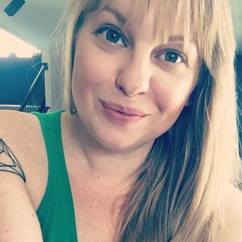 About Lindsay: After surviving domestic violence (and three years of trauma therapy), Lindsay Fischer saw an opportunity to use her voice against abuse, blogging as Sarafina Bianco since 2009. She revealed her identity in 2015 when her memoir, The House on Sunset, was released, and she now speaks on behalf of trauma survivors on national stages. Website: http://www.survivorswillbheard.com Twitter: http://www.twitter.com/linsfischer Facebook: http://www.facebook.com/survivorswillbeheard
2 Comments
Guest Post by Bob MuellerI'm happy to welcome back Bob Mueller, whose writing content is always a hit with readers. Enjoy! It seems that on most forums for writers, about once a month you'll see some post about writing by hand. It's usually phrased as a question about the anachronism of writing fiction by hand, such as "Does Anyone Still Hand-write Their Novel?" There's something almost magical about the process of words flowing through a writing instrument and appearing on paper that can't quite be matched by the digital representations we see on a screen. For me, turning pixels on and off can't equal the excitement and intrigue and suspense and sheer primitiveness of permanently staining a sheet of wood pulp with pieces of crushed metal or some combination of chemicals suspended in a solution. At this point in my writing career, I'm pretty well cemented into the idea of drafting my fiction by hand. I did about two-thirds of The Sad Girl by hand and almost the entire sequel as well. I'm 12K hand-written words into the third book as well, and even have about 600 words down for the first book in the new series, all of it by hand. The biggest advantage of writing longhand in a notebook is that I can take it with me when I take my kids to dance or sports practice, and sit in the car or wherever and write. I'm not constrained by power, wi-fi accessibility, or a bad angle of the sun against my screen. Writing by hand seems to make fiction flow better for me. It might be because I have fewer distractions. When I write by hand, I'm away from my computer, and away from the distractions of social media and the rabbit holes of research. When I flip my notebook open and start writing, it feels like I get back into the flow of the story more quickly. Is that because I'm writing more during the day when I hand-write? Or am I writing more because the story flows better? Hmm… I've also noticed that while I do fiction better by hand, I seem to do non-fiction (like blog posts) better at the computer. That may be because I haven't tried to do non-fiction by hand, although there's really no reason for me to not too. The last time I bought notebooks, I bought several for fiction, and several smaller ones, intended to use them for non-fiction. I haven't quite gotten around to that yet. My hypothesis at the moment is that I'm still scrambling on my non-fiction, and writing those pieces under deadline, meaning I don't really have the time to draft by hand then transcribe and rewrite. That may be something I'll work on this summer. I've noticed too when writing in public that people were less willing to interrupt me when I'm writing on a notebook than if I were on the laptop. There's something about the computer that seems to give permission to ask what you're doing, or at least to screen-peek. That's not there with paper. It's like there's an assumption that you're writing a letter or something similarly intimate. The most common objections I hear to writing longhand are the time involved to transcribe, and the speed difference between the two. I don't know that I have a real response to the former. You're still writing, so I don't know that the time invested in a handwritten draft is lost or wasted. The latter is certainly a valid point though. I can type at something close to 60 words per minute. I've never timed myself, but I suspect my longhand speed is about half that. I pretty much abandoned cursive writing in middle school. I wasn't fond of the exercises, so I couldn't get neat penmanship, and after grade school, we were allowed to print papers, so that's where I've stayed. I'd be very interested to see a timed test between cursive and print handwriters. The Parts:I am not a snob about my writing tools. I know there are people who cherish luxury notebooks from Moleskine and Blackwing and Amara and Smythson, but I just can't justify spending multiple dozens of dollars for what amounts to a single-use item. I realize paper quality is critical to many people, but as long as my pencil writes on it consistently, I'm happy with it. I'll save all my fiction notebooks, pretty much just because. But I'm not going to be worried about archival-quality acid-free paper. My only requirements for a notebook are that it be 8.35x11 inches and narrow or college ruled. A stiff back cover is pretty handy too, but not critical. I've been perfectly happy with a 100-page Office Depot notebook, as well as a $0.97 Walmart special. My current notebook is a Mead Cambridge Business Notebook. I've tried both side-bound and top-bound, and prefer the top-bound these days. Likewise, I'm pretty flexible when it comes to my actual writing implements. I wouldn't mind trying to write with a fountain pen, just for the experience, but I currently get by with a Papermate mechanical pencil that is the third or fourth of this brand for me (I managed to break at least two in my pants pocket.) I've also made do with a $2 pack of ten mechanical pencils from the back-to-school aisle at Walmart. The only thing I've discovered over the last couple of years is that I like mechanical pencils better than conventional, because it's so much easier to keep the point sharp. I tend to run .5 millimeter #2 leads, but that's as much of a personal preference as paper or ink choice. The Process:What does my writing process look like then? I tend to do my outlining/synopsizing on the computer, then sit down and just start writing. Then the next day, I'll type up what I wrote the day before. That gives me a mini-edit as I transcribe, making the first computer draft a second draft, or at least draft 1.5. From there, I step away from the computer, pick up the notebook, and start writing. If I need to come up with a name, I'll put in a placeholder like DEPUTYNAME and drive on. Then when I transcribe, I'll take the time to come up with a name, or use one of the many name generators scattered across the 'net (although I tend to use Behind The Name most often these days). I do the same with any serious research I need to do. There's a scene in In Plain Sight that deals with the Coast Guard handling a swamped boat with a body aboard. I wrote it the way I thought it would happen, but made a bunch of notes, and started the research process with the Coast Guard. If I need to make change, I can easily do that later to the computer draft. At some point in the day or early evening, I'll decide I’m done writing. Depending on my schedule for the next day, I might transcribe the day's writing right then, but I usually wait until the next day, or even the day after. I try to not go more than two days without transcribing though; I've occasionally found big errors when transcribing, and the sooner those are found, the less major rewriting I have to do. According to my production-tracking spreadsheets, I average about 1,500 words per day when I'm hand-writing. Looking back at older stories, I wrote on more days, but not as much each day. It took me 152 writing days over six years to finish Don't Stop Believing, which was done completely on the computer. Conversely, it only took me 86 writing days over 370 calendar days to finish the Sad Girl sequel. I'm starting to work on some short fiction these days too, and I've been handwriting that. I'm not sure if it's going as well as my long-form fiction is though. We'll see. Are you still writing by hand? Let's hear from you in the comments! Tell us what works for you and what doesn't! All About Bob: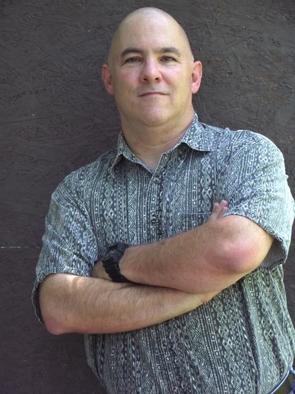 When you get right down to it, Bob Mueller writes about emotions. He finds them in his own experiences as a divorced father and family member of a sex abuse survivor, and from the people he meets. He puts himself in someone else’s shoes, and teases out their feelings. Blending that with bits and pieces of history and life experience, he crafts a story that might have been inspired by a song, or a news article. But it’s about emotions in the end. Born in north Texas and raised in southeastern Ohio, Bob is a member of International Thriller Writers, Tulsa NightWriters and Oklahoma Writer’s Federation, a father of eight, and a pastor’s husband. When he’s not writing, he enjoys reading (thrillers, historical fiction and non-fiction, and police procedurals), genealogy, and shooting. For more information, visit http://www.bobmuellerwriter.com. Guest Post by Dana LeipoldI'm thrilled to bring you another wonderful guest post on the world of writing, this time by Dana Leipold, author of Burnt Edges. Enjoy, readers! 6 Things I Hate About Writing Hate is such a strong word but it’s necessary when I tell you that I sometimes want to pull out all my teeth and hair when I write. I get so sick of battling the muse that I want to tell her to hit the road and leave me alone! And now without further ado, here are six things I hate about writing: 1. There Too Many Other People Who Are Good At It Okay, I’m a jealous person but I don’t get envious of other writers’ success; I’m really happy for them. I get envious of how well they write! I want to write like that! I’ve discovered, however, that there is no magic pill or class you can take that will turn you into a great writer. Nope. You’ve got to work hard at it, which leads me to the next thing I hate about writing… 2. Writing is Hard Work…And I Don’t Like Hard Work Now you know I’m a lazy person, too! I WISH there was a magic pill. I would have bought pallets of it from Costco. Writing is like exercise (by the way I hate to exercise too). You have to do it over and over until your muscles are so strong and big that you can do amazing things. And the older you get, if you don’t do it every day, your muscles atrophy fast. Same with writing. I HATE THAT! 3. Obsessing About It When I’m Not Writing I have a full life (even though I’m a jealous and lazy person). I squeeze writing in between my paid job, being a mother, taking care of the house, maintaining a marriage, cleaning the cat box, etc.. When I’m not writing, I’m think about it ALL THE TIME! Especially if I’m in the middle of a project. It’s like the projects seeps into my brain and possesses my every waking minute until I finish it. 4. Writing is a Solitary Endeavor When I’m sitting here staring at the screen, forcing myself not to go on Facebook because I must write, it gets kind of lonely. The bizarre thing is I do this voluntarily. I say, “no” to social engagements because I should be writing. I tell my kids and my husband to go away because I should be writing. Then when I’m alone, I can’t think of a single thing to WRITE! 5. Writing is Making My Butt Big Remember how I told you that I hate to exercise? Well, combine that with sitting at the computer for hours writing and what do you get? A BIG FAT BUTT. I’m not talking about a nice, round Kim Kardashian butt either. I’ve had to come up with really weird motivators to get my butt moving so it doesn’t get too big for my chair. 6. Writing Can Be Boring Sometimes Yes, I said it. Hollywood may beg to differ but writing is sometimes not the most exciting activity in the world. When motivation is low, when the coffee is gone, and when your eyes are so red from staring at the same paragraph for ten hours, you get bored. This is usually when you need a break to clear your head. Even though I hate these things about writing, I still do it. I can’t imagine not ever writing either. The truth is: I write because I HAVE TO…my head would explode if I didn’t. And I kind of like my head so I guess I will just have to keep doing it.  Dana Leipold is a freelance writer and author. Her award-winning debut novel, Burnt Edges (published by Booktrope) has gained critical acclaim. She also self-published two books, Stupid Poetry: The Ultimate Collection of Sublime and Ridiculous Poems and The Power of Writing Well: Write Well. Make a Difference. She helped found, Kōsa Press, an independent publishing label specializing in shared universe anthologies and is a member of the Association of Independent Authors. She practices yoga, loves funny cat videos, and lives in the San Francisco Bay Area with her husband and two children. You can visit her blog at www.danaleipold.com. You can also visit Dana on Facebook, Twitter, and Pinterest. |
AuthorH.M Jones is the author of B.R.A.G Medallion Honor and NIEA finalist book Monochrome, its prequel Fade to Blue, the Adela Darken Graphic Novellas, Al Ravien's Night, The Immortals series, and several short stories. Archives
December 2019
Categories
All
|

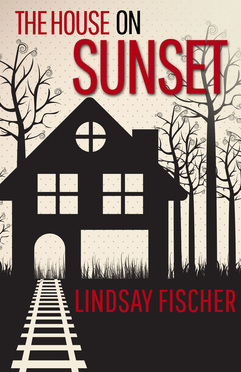
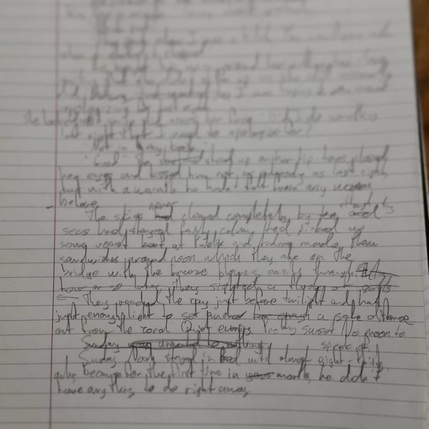

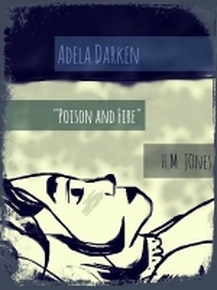
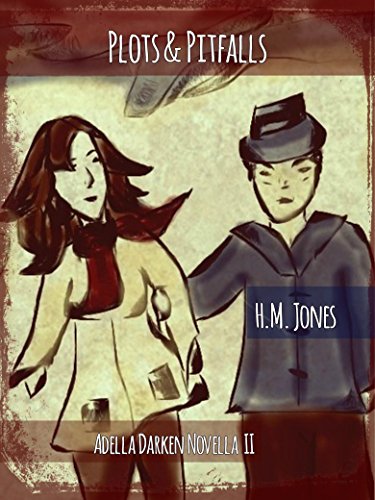
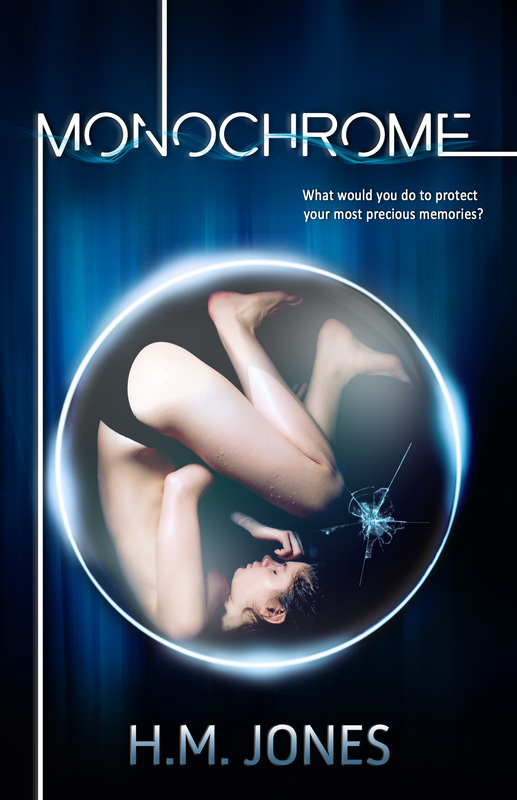
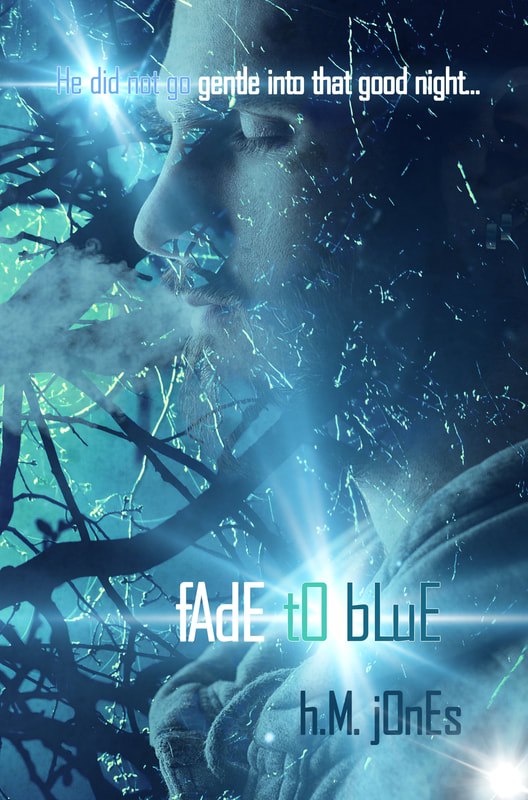
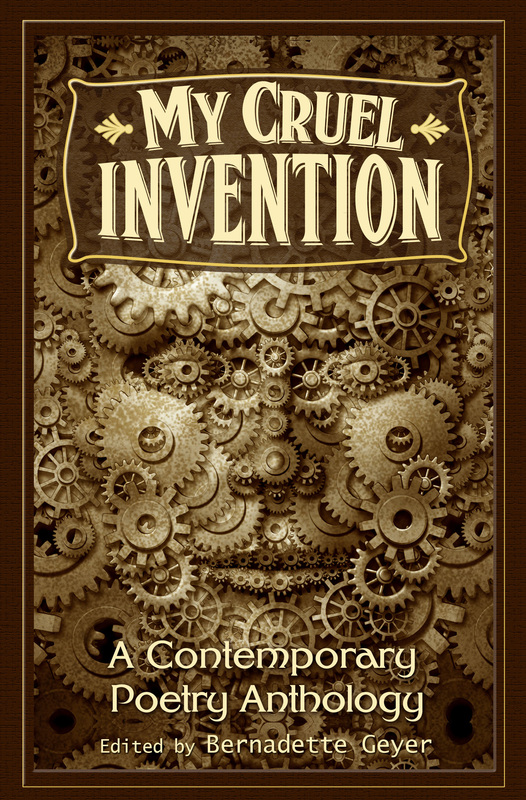

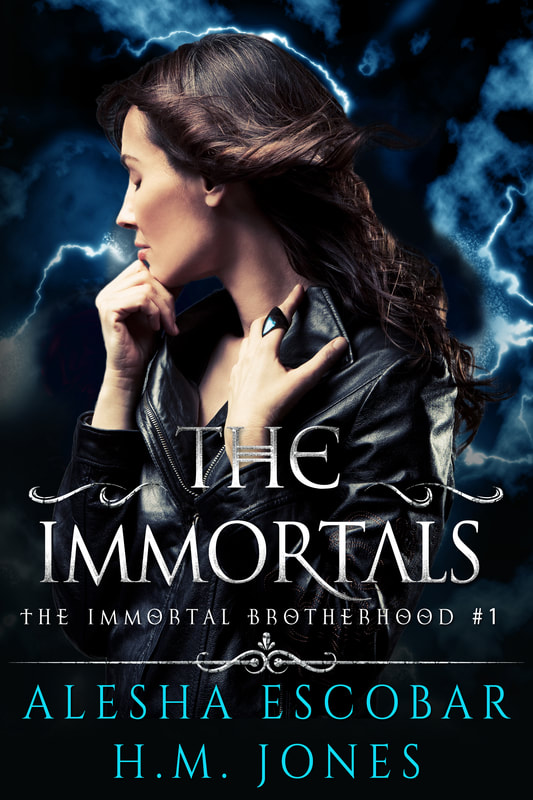
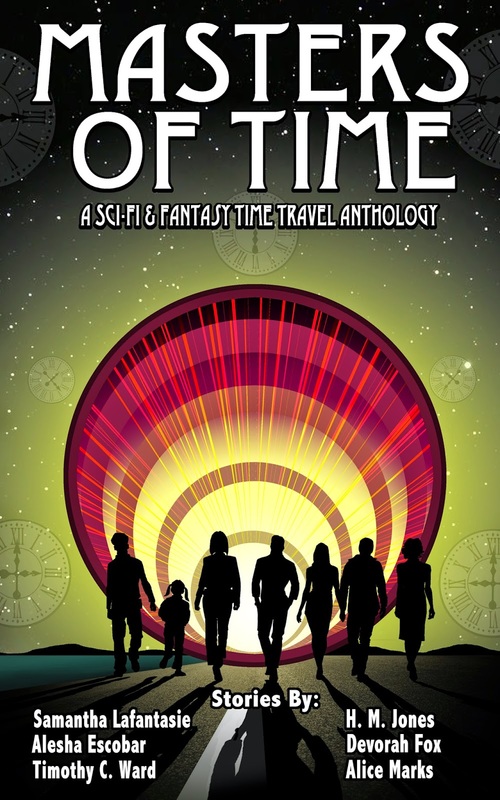
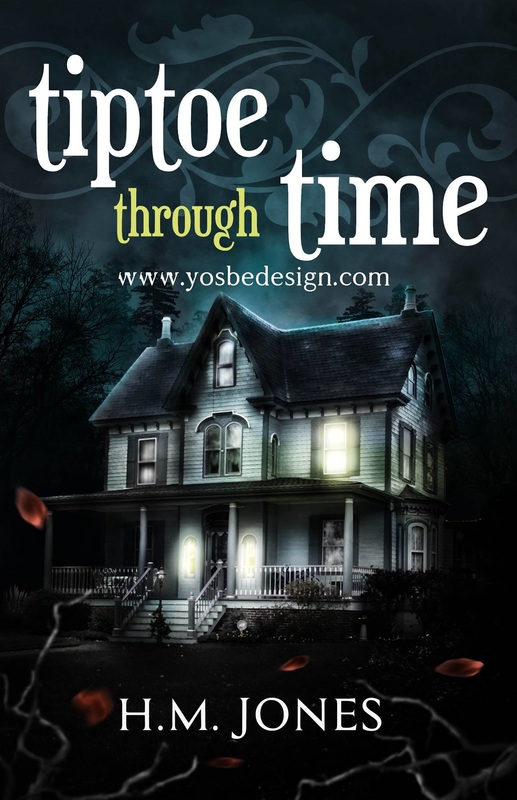
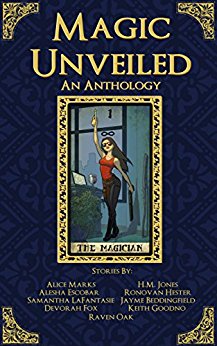
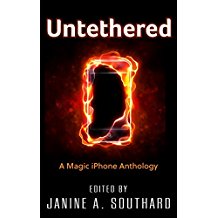
 RSS Feed
RSS Feed
